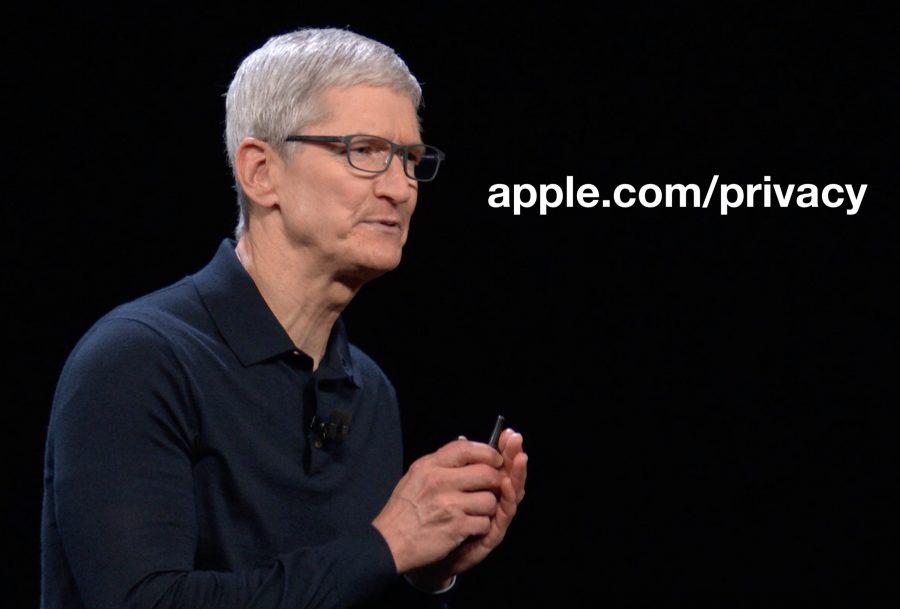
Tim Cook Promotes Privacy in Time Magazine
Apple CEO Tim Cook continues to beat the privacy drum, publishing an op-ed in Time calling for comprehensive privacy legislation. It’s short, sweet, and to the point, suggesting four principles that should guide rulemaking:
First, the right to have personal data minimized. Companies should challenge themselves to strip identifying information from customer data or avoid collecting it in the first place. Second, the right to knowledge—to know what data is being collected and why. Third, the right to access. Companies should make it easy for you to access, correct and delete your personal data. And fourth, the right to data security, without which trust is impossible.
Of course, Apple has made privacy a selling point for Apple products and services of late, going so far as to buy a 13-story billboard at CES saying “What happens on your iPhone, stays on your iPhone.” That was a none-too-subtle dig at other tech giants like Amazon, Facebook, and Google whose business models rely on monetizing their customers’ personal information. Regardless of the competitive landscape, Cook is right—we need comprehensive privacy legislation because too many companies have financial incentives to abuse the personal data we disclose to them and very little liability for inadvertent breaches. That has to change.

I applaud Tim Cook’s stance, and concur that the US needs a version of the GDPR to protect our privacy. Though as others have pointed out, Apple does take a lot of money from Google to make Google search the default, Apple does easily allow a user to switch to other search engines (DuckDuckGo, for instance)
I think Tim Cook makes some very good recommendations, which I hope will be implemented here in the US. But he is is also indirectly, but clearly, kicking Facebook, Google and Snap in the pants. Privacy is a very compelling competitive advantage for Apple:
http://time.com/collection/davos-2019/5502591/tim-cook-data-privacy/
Acxiom, one of the biggest brokers in personal data information, broadly agrees with Tim Cook.
Of course, a bit self serving (easier to lobby to make one GDPR-type bill palatable at the national level, then have to work with 50 states individually), but still…
This is true, and Apple has been steadily increasing privacy protections in iOS which have been increasingly upsetting advertisers:
Apple’s new privacy rules put Google and Facebook in a “precarious place” says ad industry exec:
https://apnews.com/5153887bc2e9452f9d6cfa0482cb5e4f
Even with the increased restrictions, Apple keeps getting more and more $$$$$ to be Safari’s default iOS, reportedly $12 million this year, $9 million last year:
“We believe Apple is one of the biggest channels of traffic acquisition for Google,” the report said, according to Business Insider."
http://fortune.com/2018/09/29/google-apple-safari-search-engine/
Here’s how other advertisers have been affected:
https://www.theguardian.com/technology/2018/jan/09/apple-tracking-block-costs-advertising-companies-millions-dollars-criteo-web-browser-safari
Columbia Journalism Review points out that Apple isn’t quite as pure as it might seem.
https://www.cjr.org/the_new_gatekeepers/tim-cook-privacy-apple.php
Article not worth the pixels that it was printed from.